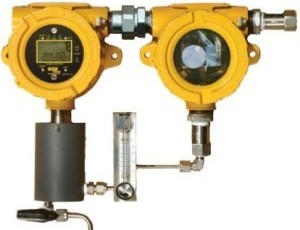Safety is particularly important if you work in an industry where toxic gases or hazardous chemicals are used. The need to detect, measure, and then notify people of a potential danger is critical. Despite the increasing variety of advanced tools to identify hazardous chemicals and gas, still one of the most widely used sensors are the electrochemical ones. With the ability to scan large areas such as factory floor as well as in confined spaces, electrochemical sensors have become integral parts of an organization’s leak detection arsenal. However, with the advantages come some drawbacks to using this type of equipment.
Pros
Accurate & Reliable
Equipped with some of the most advanced leak detection technology available an electrochemical sensor remains one of the most accurate devices on the market. Their sensors have the ability to detect harmful gasses in the range of parts per million. This means if there is one part harmful gas to 999,999 parts normal oxygen, the sensor will be able to detect and alarm you of this danger. This translates to an extremely sensitive and precise gauge that will alert workers nearby before it is too late.
Efficient
Electrochemical sensors are well known throughout the industry for their efficiency. They have a low energy output using a minimal amount of electricity. They are an extremely cost-effective piece of equipment to use. Despite this they maintain a high resolution and are very easy to read regardless of the amount of natural light available. Additionally, these sensors can self-calibrate enabling them to be extremely accurate and reliable even under harsh working conditions.
Portable
Most of today’s electrochemical sensors are equipped with the technology allowing them to be used as a part of a wireless network. This means they can be connected to laptops, tablets or smartphones. With today’s tendency to have all key personnel equipped with mobile devices while on the job, the portability of electrochemical sensors translates to greater safety for everyone.
Cons
Limited Lifespan
These sensors might be very reliable and accurate but more often than not they need to be replaced on a regular basis. On average an electrochemical sensor needs to be replaced every two to three years in order to remain as effective as possible. Extreme temperatures and low humidity can dry out the electrodes in the device thereby shortening its lifespan. Luckily, they are a relatively inexpensive piece of equipment to replace.
Ultra-Sensitive
While most electrochemical sensors perform well under harsh working conditions, they are extremely sensitive to temperature fluctuations. In cases where the temperature can shift dramatically between high and low, the sensor can produce a false alarm. This swing may require the sensor’s calibration settings to be reset. That’s why this type of gauge is best suited to an area where the temperature is likely to remain within a limited range.
False Alarms
Electrochemical sensors are sensitive to interfering gases thereby causing the gauge to issue a false alarm. Substance specific electrochemical sensors are designed to only detect and measure particular gases. But in some cases with the presence of other gases, the sensor will give a false reading. As you can imagine this poses a serious problem in any work environment. If a sensor gives a false warning, the building or surrounding area must be completely evacuated. Work will be halted until safety personnel have deemed it safe to return.

